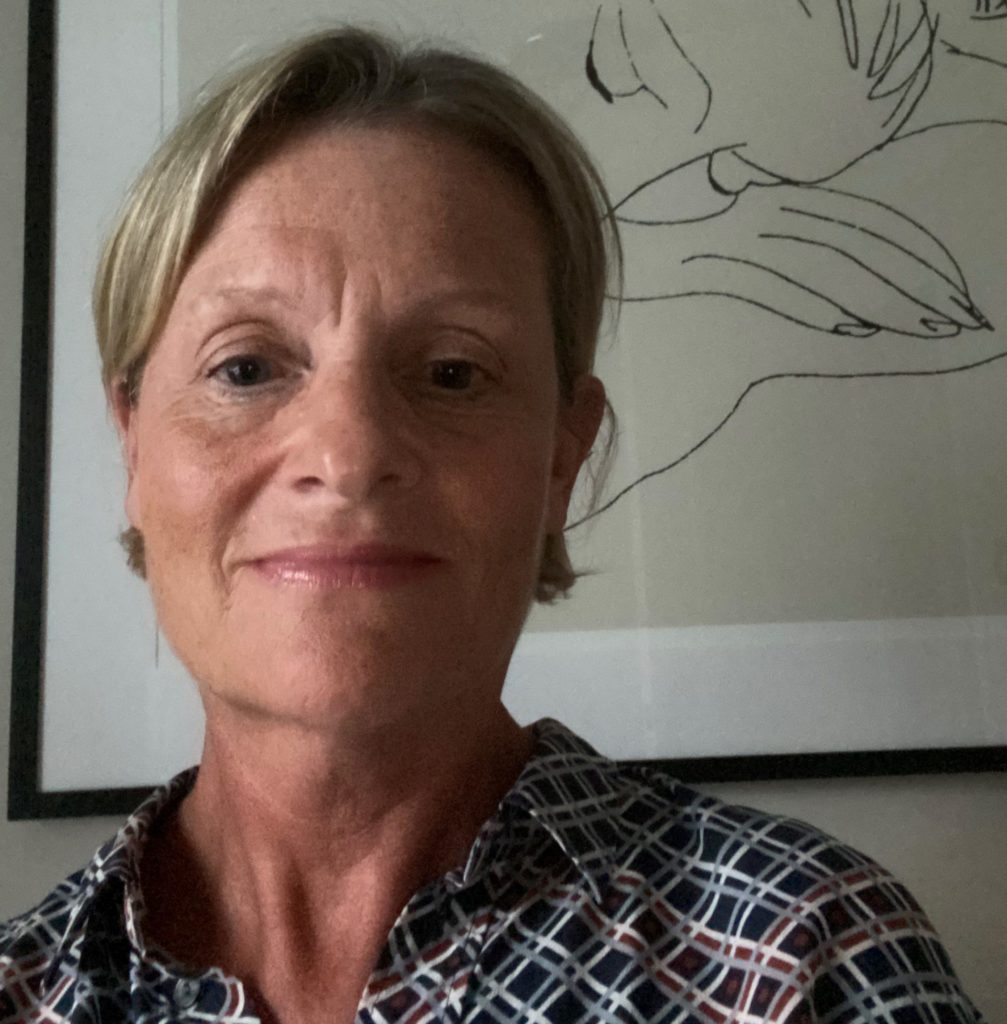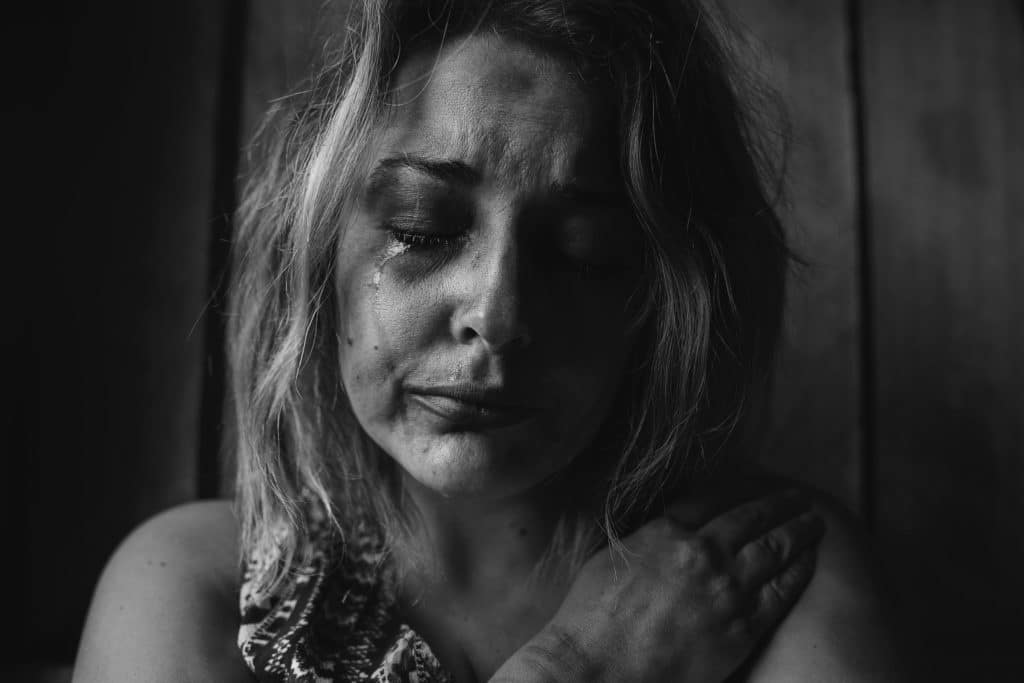Interview with our experienced and highly respected Independent Social Worker Mary Cullen on social workers going above and beyond for vulnerable families during the COVID-19 pandemic

Social workers have shown immense resilience during the COVID-19 pandemic and had little choice but to place any health anxieties to one side, don their protective clothing, roll their sleeves up and carry on supporting vulnerable families who were the hardest hit during the crisis.
In fact, Independent Social Worker Mary Cullen found herself becoming even more hands on with families than usual, particularly during lockdowns, as families were experiencing substandard housing conditions, mental ill health, low incomes and trying to do their best with what they had.
At a time when vulnerable children and families needed support more than ever, many early help, preventive services and activities such as after-school clubs and children’s centres were pared back and virtually impossible to access. This meant that, instead of sign-posting families to various services, Mary was herself helping families with low literacy skills to fill in forms, contacting housing departments on their behalf, helping get children registered with a GP if the families were forced to flee domestic abuse and move areas as well as buying food for families struggling to make ends meet and feed their children. “No child goes hungry on my watch,” she said.
Accessing frontline local authority social workers was difficult as they were running in skeletal teams, although, when Mary did access social workers, they “pulled out all the stops” to provide help for vulnerable families. “Everyone pulled together to get things sorted,” she added.
Social workers had no option but to step up to become the fifth emergency services during a difficult period and a worldwide pandemic. “It hit us overnight and we just had to get on with things and get through it somehow which is testament to how good and how creative social workers are.”
Mice infestations
Mary has been an Independent Social Worker for nine years and registered with
WillisPalmer for eight of those years, yet she said there was a lot of learning occurring during the pandemic. “It was anxiety provoking where you would question how you would get an assessment completed. I had to work out how creative I could be and still manage to get the best from parents.”
“Some were living in poor housing conditions, infested with mice, where the children would stuff their socks into holes to stop the mice getting into their bedroom. Some women had escaped domestic violence and were living in a new area and trying to get their children registered at school and with a GP with no support network and no respite. A woman had moved areas and her child had to take two bus rides to get to school and therefore she needed to get him an Oyster travel card but this is all done online and she had no internet access and low literacy skills herself.”
“On top of this, during lockdown, parents were having to home-school their children which placed immense pressure on families, particularly when there was no internet access or the parents struggled with learning themselves. To see the shame among some parents when they felt they were unable to help children with their school-work was awful,” said Mary.
“I am very hands on anyway, but with many services unavailable, it was quicker and easier for me to help families fill out forms or contact housing departments than to refer them on. It was a very good insight as to what some parents go through trying to access different services and departments and there was a lot of learning,” added Mary.
“The greatest challenges were ensuring that families had what they needed, that there was enough food in the house, that children were safe and the parents were supported. Often families became very isolated, particularly if they had relied on their professional networks which were gone, and then their mental health deteriorates, whereas others had physical health needs,” she added.
Not one family used COVID to avoid seeing me
As Mary is both highly regarded and respected both within WillisPalmer and the wider social work sector, she is highly involved in WillisPalmer’s Multidisciplinary Family Assessment Service. Led by the assessing ISW, a team of psychologists, psychiatrists, therapists and family support workers work with families over an eight-week period in their own homes to avoid costly residential assessments while mitigating risk with the family support workers available for 24/7 cover where necessary. The aim is for the multi-disciplinary team to assess the family while working with them on strategies to improve their parenting and address any issues that may have arisen. Mary is also a trained PAMS assessor and therefore carried out PAMS and parenting assessments.
As England went into lockdown in March 2020, Mary was not only dealing with the pressures that COVID placed on her social work duties, but her daughter who lives with her had a compromised immune system following a hospital stay earlier in 2020. However, the situation was so dire for many vulnerable families that Mary took just four weeks off home visits when the infection rates were so high for fear of bringing the virus home to her daughter. After this, Mary carried on with her assessments combining remote work with face-to-face meetings and observations.
“I travelled by train and would carry antibacterial wipes everywhere, I’d be wiping the button you press to open the train door, wiping the tables, I had full PPE - even those coverings for your shoes when I was going into someone’s house. When I arrived home at night, I would go through the side gate, remove my clothing in the conservatory and put it straight in the wash to avoid transmission. I wiped the shopping down. Although we’d had the all-clear for my daughter, I was still very worried about her and tried to shut down thinking about it, definitely using an avoidant strategy. It actually made me more aware of other people’s coping strategies and, whether they are right or wrong, it made me less judgemental when thinking about how others approach things. They are doing what they need to do to get through things,” she said.

Social workers like Mary also had to start utilising technology during their work in a way they had perhaps not done previously whether it was using Zoom, WhatsApp, Microsoft Teams, Skype or FaceTime. Many families welcomed the use of technology when dealing with professionals whereas others preferred not to use technology or simply did not have internet access or a smartphone.
“Families were good and would let me know if they had any symptoms of COVID,” said Mary, adding that not one family had used the pandemic as an excuse to avoid contact with her. “If they had symptoms, we would use a Zoom call if they were happy with that and, if not, we would delay our meeting and I would go back to the local authority and explain this. They were very understanding as we were all in the same boat.”
“One woman I was working with was disappointed that we couldn’t meet as she was so desperate to show me what she could do. She had a toddler and the child wanted to be involved in the call and she was very good at distracting him with coloured pencils to draw a picture and I tried to reassure her that I could get a good insight into how she engaged with her child through the call. I wanted to get the best from parents and would explain that if we are meeting virtually, it would not impact the outcome. However, if families were not comfortable with remote assessments and meetings, we asked the local authority for an extension. Some parents were living with their elderly parents who were shielding and we would plan meetings in the park – around the rain,” she added.
‘I’m not going to change the way I practice’
When Mary was on a Zoom call with parents, she would ask them to show her round the house and she could then ascertain whether she would be able to observe the 2m distance rule if she visited. She wore the full PPE although sometimes when visiting families, small children would come up to her. “I’m never going to turn a child away. I had full PPE on and for me, personally, I wasn't going to change the way I practice.”
There are positives of remote working and also positives for face-to-face social work, says Mary. “Some families feel nervous and anxious about meeting you and you have to prepare how you will reassure them. Using technology gave them more control in the situation and broke the ice. I was working with a mum and wanted to see her play with her child so I sent her some hand paints and a diagram as to how you can make ‘The Hungry Caterpillar’. She was worried it hadn’t turned out perfectly but that wasn’t the aim of the exercise, and I could tell a lot by the body language of the child watching remotely, However, it would have been nice to be there and get a feel of how it was going.”
Mary stresses that: “Observations should be face-to-face and some interviews such as attachment interviews. When you are asking parents about their history, I like to get to know people first and ask them about this face-to-face. When you are in someone’s home, they have photographs which you can tell a lot from and can be a great ice breaker.”
“I am never going to be able to say I will do a whole assessment on Zoom, some parts need to be face-to-face,” she adds.
Child abuse going undetected
Video-calling does allow social workers to reduce the amount of traveling they do which makes more efficient use of time. However, Mary struggles with the idea of a parent being on their own after a video call meeting with her, even though she always tries to end the session on a positive note, and that part of remote working has been difficult for her to ‘get her head around’.
Mary believes that post-pandemic, Independent Social Workers will probably use a combination of remote and face-to-face work, although each should be taken on a case-by-case basis, with risks managed and whatever works best for the family.
However, ISWs and frontline social workers in local authorities will have their hands full as the impact of the pandemic on children and young people becomes clear. It was widely anticipated by children’s services leaders, the children’s commissioner for England and children’s charities that referrals would soar in September 2020 when the majority of children returned to school – many of whom had been out of education for six months. In fact, Matt Dunkley, director of England’s largest child protection team at Kent Council anticipated that referrals could rise as high as 250% .
‘We see the casualties’
Yet this increase in referrals did not materialise. This led Ofsted chief inspector Amanda Spielman to warn that child abuse could be going undetected in the inspectorate’s annual report.
This month, children’s charity the NSPCC has revealed that they had record number of calls to their helpline from adults concerned about adults’ behaviour and health and the potential impact on children during the last year and, of these calls, 47% led to a referral to an external agency, such as the police or children’s services.
“The extent of the pandemic will come through and be recognised in children’s behaviour when they are disturbed or distressed – how could this not impact on them? It takes a long time for children to disclose abuse or neglect, but it as a case of when, not if, these problems emerge in children’s behavioural patterns,” said Mary.
“It may take a long time for the symptoms to be recognised. We need to know these children and their histories – that is how so many families get missed. But the impact of neglect or abuse on a child in lockdown is not going to not come out at some point,” she added.
Mental health, Mary believes, will be the greatest challenge to emerge from lockdown among children, young people and adults. “Many people may not even realise they have mental health problems – they are just trying to survive and do the best they can before the next problem comes along.”
It is imperative, she argues, that the government listens to social workers. “Rather than blame social workers every time there is a child death, the government needs to recognise that it is the system, not the professionals, that let children down. We see the casualties, families living in poverty, struggling to feed their children, having to access food banks, not having the literacy skills to help their child with their homework, a lack of internet access, poor housing conditions, struggling with mental ill health. They are surviving in hugely difficult circumstances and doing the best they can. People don’t set out to hurt their children, they are often trying their best but in very challenging times,” said Mary.
“Politicians need to help social workers and support us to support vulnerable families and enable children to thrive. They need to see that the system is so unequal. Come and spend a day, a week with a social worker. Then they will see the reality of the situation,” Mary concluded.



